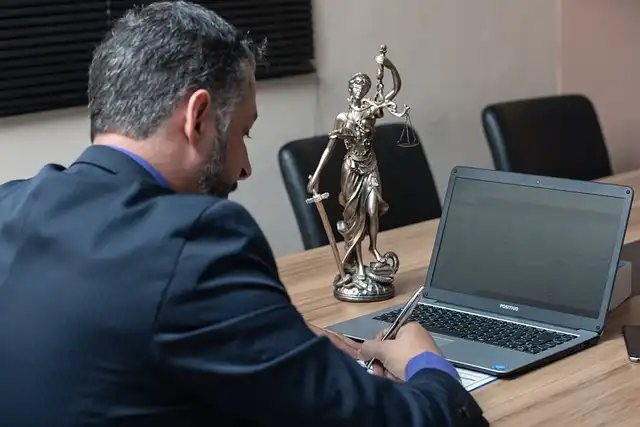This Devon exhibition explores why, when it comes to the environment, the planetary is not at odds with the local

Among the many sources and narratives running through this multi-stranded show are James Lovelock’s Gaia theory, which posits that Earth and its biological systems behave as a huge single entity, and Charles Elton’s 1958 study The Ecology of Invasions by Animals and Plants.
While Ghadiali desires us to draw our very own conclusions, one desire would definitely be for the world’s governments to get rid of their idea in individual and nationwide rate of interests being at odds with those of the planet, and to know that in order for all of us to survive, both the neighborhood and the global should be equally and at the same time embraced.
“There is an obtained idea that the planet or the worldly is in some way opposed to the regional, and this really does not make any sense as soon as you begin to examine what the world is, and where It is, since obviously it’s all around us, anywhere we are,” states Ashish Ghadiali, whose crucial solo exhibition, Sensing the Earth, is currently open at Thelma Hulbert Gallery in Honiton, Devon. The show explores this inherent interconnectedness and just how our various communications– social and historical too geographical– all play right into the earth’s present ecological emergency.
There’s the artist’s family daal recipe and footage of Ghadiali swimming in the River Dart, as well as a British propaganda film of the Mau counterinsurgency in Kenya during the 1950s, and local television footage of the arrival of Gujarati refugees from Uganda to south west England in 1972. Ghadiali comments that, “we consider the world and the planetary as something conceptual and abstract, however I’m trying also to demonstrate exactly how deeply individual it is: my Papa, my grandparents, my youngsters are also all in the work.”
“I began to get thinking about the concern of what does art mean to me, as somebody who is invested in the idea of environmental justice, and just how can we symbolize principles of climate or environmental justice from any place we are,” he describes. “I likewise consider this inquiry as a query right into how we can symbolize the global within ourselves.”
Whether talking about issues ecological or life as a whole, the terms ‘regional’ and ‘worldwide’ often tend to be set in a binary ‘either/or’ configuration. This despite the noticeable truth that these two states are not mutually unique but co-existent. For it is the extremely nature of our presence that we are simultaneously component of the larger world along with wherever we take place to grow our feet.
Making use of photographic prints, film jobs and an audio item all made within the last 2 years, Picking up the Planet takes a look at the extensive ways in which we are all affected by these macro-micro intertwinings and their effects. Amongst the several sources and stories going through this multi-stranded show are James Lovelock’s Gaia concept, which posits that Earth and its organic systems act as a big solitary entity, and Charles Elton’s 1958 research The Ecology of Invasions by Animals and Plant kingdoms. They are likewise accompanied by a 7 second gif illustrating the human cost of international warming, and a 10th century Shiaivite Sutra checked out by Ghadiali’s young child.
By 2019 Ghadiali was an active member of Sorrowful of the Earth, a “grassroots cumulative for Indigenous, Black, Brownish and Diaspora teams and people demanding environment justice and acting in uniformity with neighborhoods throughout the UK and in Global South”. Especially, he was associated with the organisation’s widely-cited open letter to Extinction Disobedience (XR), which contacted XR activists to be a lot more nuanced in their acknowledgment of the historic and modern facts and intricacies of climate justice. The letter likewise asked XR to reevaluate techniques that would certainly be harmful to Black, brown, and Indigenous activists, and to rethink the ways in which XR protestor techniques build on white opportunity.
Resounding throughout Sensing the World are the myriad methods which colonial violence and extraction underpin the eco-friendly breakdown that is currently influencing us all, however which is really felt most keenly by the world’s climate prone populaces– those who were rarely in charge of the dilemma to begin with. For Ghadiali, racial justice and environment justice can not– and should not– be separated. He sees his present expeditions of exactly how they intersect as component of a long-lasting dedication to racial justice. “This is my first exhibition as an artist– I’m a lobbyist. I’ve been a racial justice lobbyist all my life,” he mentions.
Which brings us back to Devon, where Ghadiali and his household have been based for the past few years. Commenting that his earlier activism was “constantly pointed in other places”, Ghadiali now sees his own feeling of the global as being in wonderful component symbolized via “investigating where I remain in the South West of England, residing in a seaside village and elevating blended race youngsters”. He sees this as part of “relocating through the area’s deep imperial history as an area that is propped up on the early leaders of colonisation to run into the landscape and time”.
Rather than being academic, Ghadiali sees his certain conflation of the individual, neighborhood and worldwide as being much more symptomatic and pointing to brand-new opportunities that exist within all of us. “I believe what we need is spaces in which we can develop the globe anew– we need to divide ourselves from the systemic baggage that we are lugging in this dilemma and develop new structures,” he says. “Desires are a large component of the technique and the job: desires precede and globes come later on.”
For Ghadiali, racial justice and environment justice can not– and ought to not– be separated. While still in his twenties Ghadiali was component of the team that, in 2006, established up the Flexibility Theatre in Jenin Evacuee Camp in Palestine, which was chosen for a Nobel Tranquility Reward last year. By 2019 Ghadiali was an energetic member of Sorrowful of the Earth, a “grassroots collective for Native, Black, Brownish and Diaspora teams and individuals demanding climate justice and acting in solidarity with communities throughout the UK and in Worldwide South”. Commenting that his earlier activism was “constantly pointed somewhere else”, Ghadiali currently sees his own feeling of the global as being in terrific part symbolized with “researching where I am in the South West of England, living in a coastal town and increasing combined race kids”. Instead than being academic, Ghadiali sees his certain conflation of the individual, local and worldwide as being extra suggestive and pointing to new opportunities that lie within us all.
The weave of this protestor’s journey all feed right into the current show at Thelma Hulbert. While still in his twenties Ghadiali was part of the group that, in 2006, set up the Liberty Theater in Jenin Refugee Camp in Palestine, which was chosen for a Nobel Peace Reward in 2015. After that, after a spell composing Bollywood scripts, he came back to the UK and remained to operate in film, routing a feature docudrama about the Battle on Terror for the BBC and BFI.
Dealing with Wretched of The Earth progressively brought Ghadiali into contact with a more comprehensive swathe of environment scientists, civil society groups, policymakers and– progressively– arts establishments. These larger associations underpinned the establishment of Radical Ecology, which Ghadiali co-founded in 2021. This organisation remains to function across research study, plan and art to advancement ecological justice and work together with musicians, climate scientists, grassroots activists and social organizations to provide crucial interventions and public art tasks.
1 Ghadiali2 Sensing the Planet
« Anastasia Bukhman, the Russian-born collector behind a £1m donation to London’s National Portrait GalleryArt Week Riyadh will “bring together the many layers of Saudi Arabia’s art scene” »
